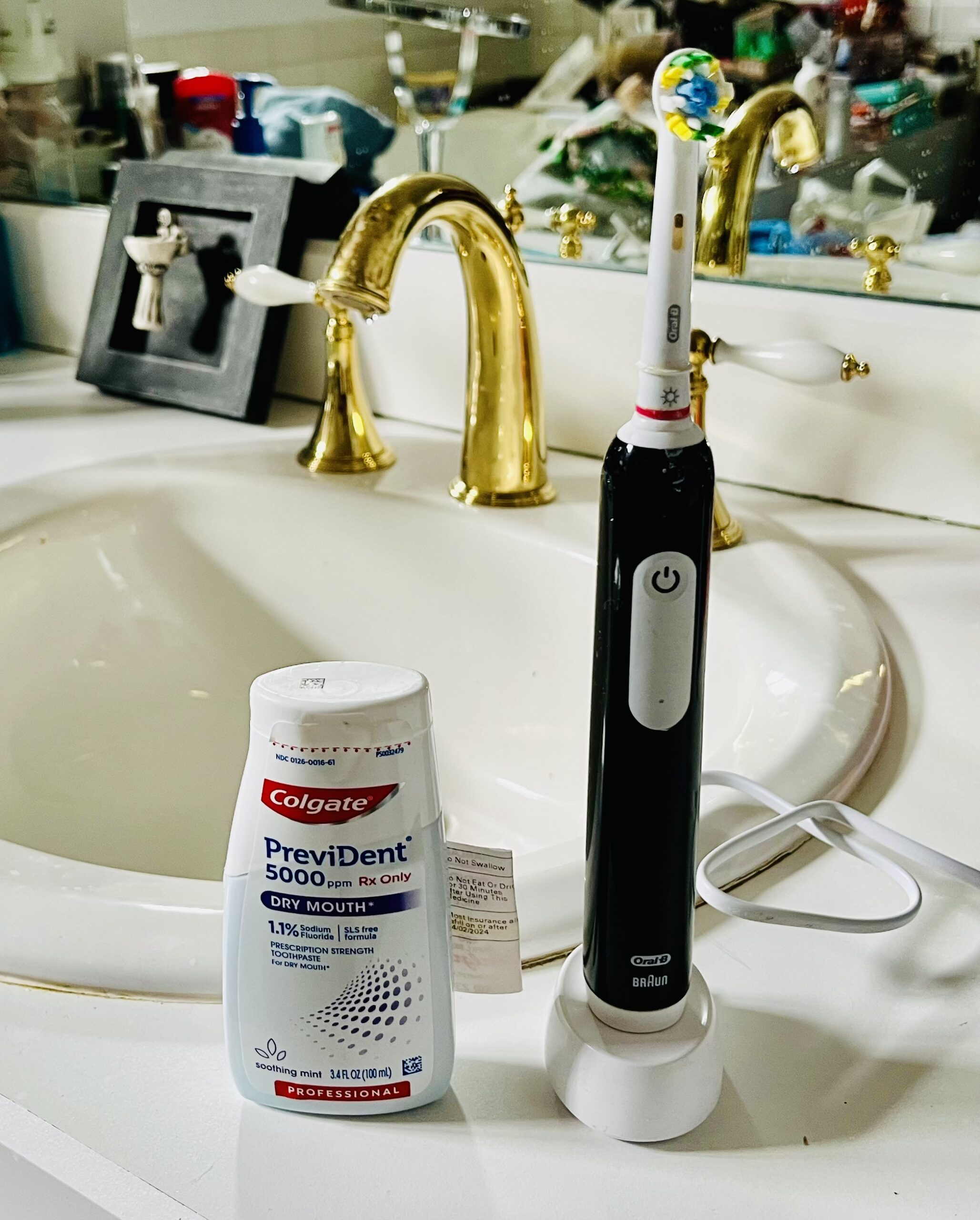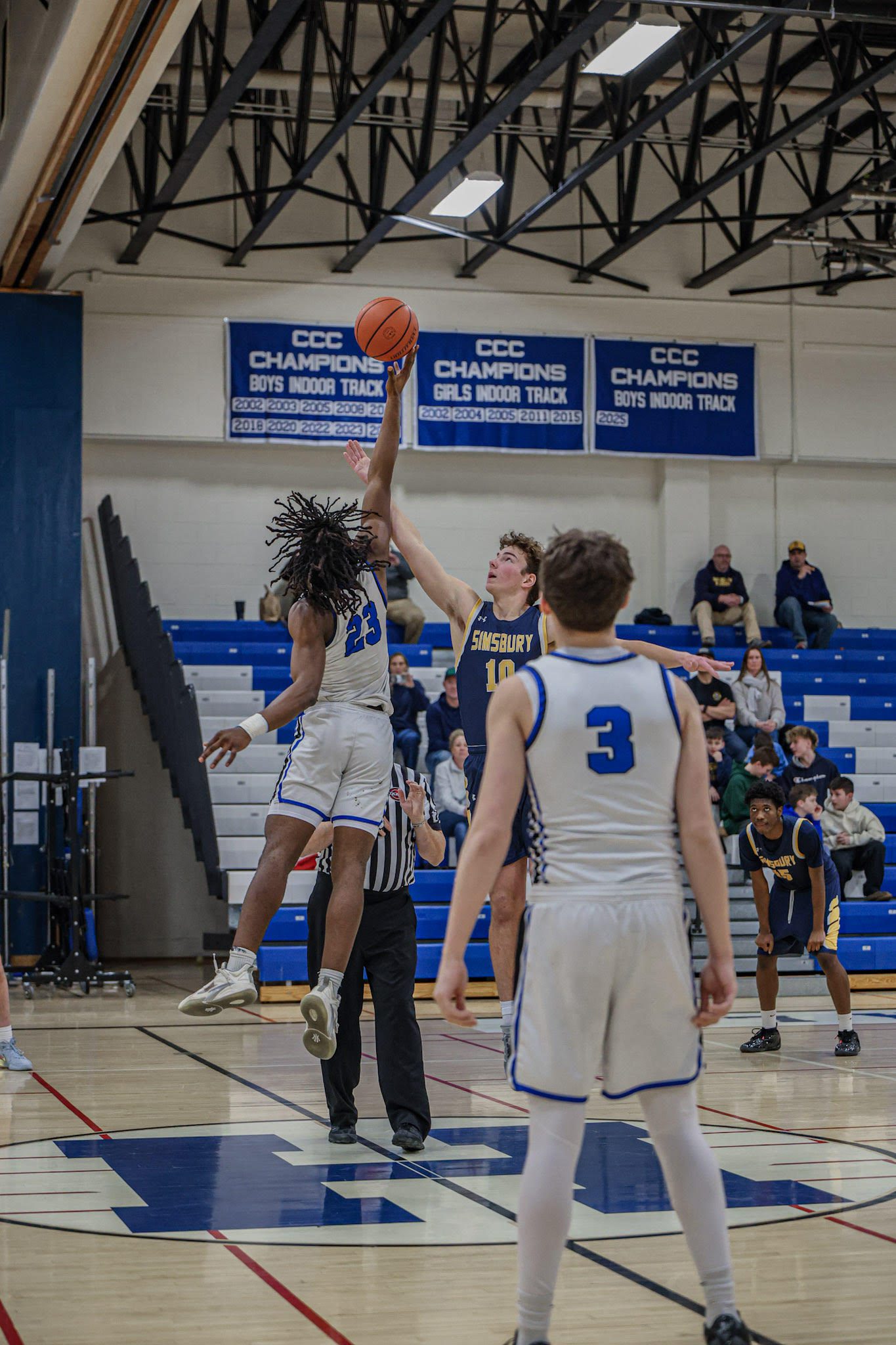Consumer Diary: Norovirus, Brush Teeth A.M. and P.M.

Audio By Carbonatix

Here’s the prescription toothpaste my dentist prescribed for me and my new Braun electric toothbrush with flossing bristles. PreviDent is a fluoride toothpaste, costing $0 with my insurance. Photo credit: Harlan Levy
Consumer columnist and West Hartford resident Harlan Levy has more than 20 years of experience writing stories about everyday experiences that anyone could encounter.

Harlan Levy. Courtesy photo
By Harlan Levy
Today I’ve got two health matters – one serious – for consumers.
On Friday my wife, our daughter-in-law, and our two hyper-charged granddaughters, 2 and 6, went to a Shabbat dinner at our temple, where we sat through a Shabbat service and then a sumptuous buffet meal, while the kids were running around non-stop.
Two hours later, at home, I felt stomach cramps rumbling, which kicked off a tortured night of severe diarrhea, nausea, and violent vomiting that lasted until late Saturday morning, with the chronic diarrhea continuing through Monday.
Was it food poisoning? No one else had these symptoms. Could it be a case of the surging Norovirus?
“A common stomach bug [the Norovirus] is surging,” the U.S. Centers for Disease Control and Prevention said.
My symptoms certainly sounded like it, according to my online research: “Norovirus infection can cause severe vomiting and diarrhea that start suddenly,” one website, Mayoclinic.org said, seconded by several others.
Well, my symptoms certainly appeared suddenly out of nowhere.
How about the rest of my family? Thankfully I heard of no one else with symptoms since the meal, but were the others with me and around me at risk? Definitely.
“Noroviruses are highly contagious,” Mayoclinic.org said. “They commonly spread through food or water that is contaminated during preparation or through contaminated surfaces. Noroviruses can also spread through close contact with a person who has Norovirus infection.”
Signs and symptoms usually begin 12 to 48 hours after your first exposure to a norovirus, I was told.
Norovirus infection occurs most frequently in closed and crowded environments like hospitals, nursing homes, child care centers, schools, and cruise ships, I learned. Made me think about a long conversation I had had a few days before the dinner with an acquaintance who was lauding the cruise his wife and he had just taken.
Uh oh. I could have spread this debilitating ailment. So I called the temple on Monday to find out if anyone else had the virus. But no one had reported symptoms to the temple.
All the sites I found agreed that Norovirus infection symptoms usually last one to three days. Most people recover completely without treatment. “However,” one site warned, “for some people – especially young children, older adults, and people with other medical conditions – vomiting and diarrhea can be severely dehydrating and require medical attention.“
What’s more, Mayoclinic.org said, ”You can continue to shed virus in your stool for several weeks after recovery. This shedding can last weeks to months if you have another medical condition.”
I’m telling this story to put you readers on alert. Since that dinner, on the few occasions I left our home, I wore a mask, and you should do so as well whenever you’re in a crowded supermarket, retail store, or gathering. Few do these days. I noticed only one elderly man out of many wearing a mask on my last outing.
And now you know.
Why brush your teeth both morning and night
I went to my West Hartford dentist last Wednesday for a regular cleaning. After Nicole was done, I asked her a question, which I‘d been pondering for a while and which you may know the answer to: Why should I brush in the morning, especially since at night I always I did an extensive flossing, then scraping with a sharp scraper, then using small thin brushes between my teeth, then, finally turning on my electric tooth brush with its flossing bristles. Wasn’t that enough? Was a morning brush just to massage my gums?
No, she said. It’s because harmful bacteria build up extensively overnight around your teeth.
From some online research I learned that during the day and throughout the night, our mouths encounter different types of bacteria and produce saliva as a defense to fight the development of tooth decay and gum disease. Brushing in the morning cleans off the bacteria that may have settled overnight, while incorporating teeth brushing into your nightly routine removes food particles and acid that your teeth may have encountered during the day.
“Overnight, with reduced saliva production and closed mouth conditions, bacteria multiply, leading to potential plaque buildup,” and cavities and gum disease, one site said. “Brushing in the morning effectively removes these unwanted guests,” also jump-starting saliva production and eliminating bacteria behind not-so-fresh morning breath.
Note: most toothpaste brands contain fluoride, a mineral that helps reinforce tooth enamel. Brushing in the morning with fluoride toothpaste can add a layer of protection.
Again, now you know – if you didn’t know it already.
NOTE: If you have a consumer problem, contact me at [email protected] (“Consumer” in subject line), and, with the power of the press, maybe I can help.
Like what you see here? Click here to subscribe to We-Ha’s newsletter so you’ll always be in the know about what’s happening in West Hartford! Click the blue button below to become a supporter of We-Ha.com and our efforts to continue producing quality journalism.




Wearing a mask won;’t prevent norovirus. It is primarily spread through surface contact.
P.S. Most adults already know the reasons behind brushing teeth twice a day.